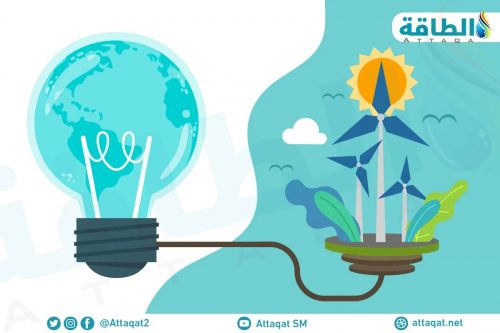The countries of the world are preparing to discuss developments in the oil, gas and energy industry, during CERA Week 2023, which begins Monday, March 6 (2023), in the United States, specifically in Houston, and lasts for 5 days.
The conference provides a comprehensive and integrated framework for understanding the present and future of global energy, especially as it presents insights on energy markets, geopolitical developments, as well as energy technologies, and discusses production costs and the impact of environmental policies on climate change, according to what was published on the official website.
It is expected that CERA Week 2023 will discuss the relationship between energy and the global economy, with the aim of creating strong business models for the oil, gas and energy industry, as well as discussing the “effectiveness” of the industry structure, investment and leadership, according to information obtained by the specialized energy platform.
The global oil and gas industry
CERA Week 2023 is taking place, in globally affecting circumstances, in light of the blockade of energy transition trends as a result of the war in Ukraine, and its global impact on oil and gas trade and their markets. This has resulted in a complex situation, in which talk about the energy transition is not taking place in isolation from energy security.
The conference brings together global leaders to present new ideas, visions and solutions to the biggest challenges facing the future of energy. Where it is the largest gathering of energy stakeholders, in addition to the participation of automobile manufacturers, transportation means, electric utilities, energy and hydrocarbon-intensive manufacturing companies, as well as local policy makers and financial institutions, in addition to the annual and growing presence of technology companies.
The meeting aims to come up with a more comprehensive perception of the global energy conditions, and the extent of their impact on the transportation, electricity and petrochemical industries, and the energy-intensive industry. An economic entry with a profound impact on national economies and the global economy.
The outputs of CERA Week 2023 often reflect global energy conditions from the point of view of the oil and gas industry and energy markets, and they are the most familiar with their conditions. Therefore, governments, decision-makers, and the media receive them and expand them in research and analysis, in addition to disseminating them on a larger scale among those concerned with “non-institutional” energy affairs. to become its most traded output.
The 41st edition of the conference
The SIRA Week 2023, in its 41st edition, is scheduled to take place from 6 to 10 March, to focus during the current year on a number of factors, foremost of which is access to a low-carbon future and achieving global energy security.
The 40th edition, which was held last year, focused on energy security and reliability, rather than focusing on what was previously planned, namely energy transition technologies, and the pivotal role of renewable energy sources, which was the central theme of the conference.
It is noteworthy that efforts to combat climate change are bringing about a fundamental change in technologies that use oil and gas, and the penetration of renewable energy and hydrogen technologies into energy markets will change the global energy mix, especially since the war in Ukraine has changed the rules of the geopolitical game in Europe.
Topics of discussion and circulation
FirstlyDesigning the world’s energy systems for a low-carbon future remains critical. Recent global crises have redefined how the world understands the future of energy, by putting energy security back on the table.
The successive disturbances may lead to huge imbalances between the energy the world needs and the ability to provide it. Geopolitical turmoil and constant fluctuations in energy markets have overturned traditional strategies, re-arranged trade relations and rethought energy transition paths. Hence, CERA Week 2023 is expected to focus on building a system that differentiates between energy security, sustainability and reasonable prices, with the aim of meeting the growing global demand for energy. Therefore, this year’s conference will focus on answering a set of questions, namely:
- What fundamental shifts in investment, policy and technology are required to achieve this?
- How will the oil and gas industry weather the turmoil and lead the global transition to a sustainable, safe, abundant and affordable future?
- How do market shocks change the competitive playing field and structure of the energy industry? What new strategies are being adopted?
- What are the pathways toward synchronizing the phase-out of existing energy systems with the build-up of low-carbon and net-zero solutions?
- Is there a new future for natural gas?
- What is the role of hydrogen, nuclear energy and biogas in the energy mix? And how does the industry innovate to deliver it?
secondlyThe rate of occurrence of successive shocks to the international system, such as the Corona pandemic and the succession of wars, direct energy crises, high inflation, social unrest, geopolitical tensions, and the increase in the role of the state in energy markets, has become more frequent, deeper, and on a larger scale; Volatility has come to dominate global politics, economics and security. Within this context, the conference will attempt to answer the following questions:
- What is the new map of geopolitics emerging from the current turmoil?
- Has the era of globalization ended as markets and industries know it now?
- How will the growing divisions affect energy trading, risk management and capital flows?
ThirdFinancing the energy transition will be prohibitive. Resetting the world’s energy system to achieve carbon neutrality goals while preserving production systems that enhance energy security will require investments amounting to trillions of dollars.

Governments have played leading roles in industrial policy, by offering massive stimulus to stimulate capital and accelerate transformation goals. But these energy investment needs come at a time when the global economy is facing significant headwinds from high inflation, slowing growth, and increased risks of geopolitical instability. Therefore, the conference will try to answer:
- How will the markets respond?
- How will investors deal with these risks and opportunities?
- What will be the effect of the American inflation reduction law in accelerating investment?
- What will facilitate capital flows to developing countries to promote just energy transitions and bridge divisions between North and South?
finallyRoadmaps for achieving carbon neutrality require extensive use of a wide range of minerals, whose supply chains are highly risky and often constrained; Green technologies for the transition require minerals that are scarcer and more demanding per unit of power generation than conventional energy sources.
Governments are beginning to express concern about whether there will be a secure and sufficient supply of minerals to achieve an energy transition, in which green technologies have a large share of the energy mix; Therefore, the conference agenda will focus on:
- Will failures of energy storage technology or new geopolitical crises and broken supply chains disrupt the energy transition?
- How will supply chains be modified and expanded? And what are the industry’s contingency plans for the disruption?
- Does globalization give way to adaptation and adaptation?
Sierra Week 2023 Agenda
The 2023 Sierra Week agenda is expected to include a number of important events. Including hosting the US Special Envoy for Climate Affairs, John Kerry, in a session that will focus on US climate legislation, called the “Inflation Reduction Act”, which includes policies that are “generously supportive” of green energy industries.
US law aims to support US acquisition of both global value and supply chains for these technologies; Where he sees “allies and opponents” as a threat to freedom of trade, robbing them of their shares in its markets, and a geopolitical threat to the paths of energy transition.
In addition, the conference is expected to focus on hydrogen as a promising energy carrier. It was reflected in the large number of sessions that will discuss it from all sides, but the week is witnessing an unjustified absence of international energy organizations.
The conference also includes an exhibition entitled “Innovation Now”, as it is a center for technology and innovation programs at the conference, and includes thought leaders, technologists, startups, investors, academics, energy companies and government officials, according to information seen by the specialized energy platform.
The conference will showcase transformative technology platforms in the field of energy ranging from digitization, artificial intelligence, cybersecurity, analytics, connectivity, robotics and digital currencies, additive manufacturing, new mobility technologies and decarbonization.
related topics..
Also read..

Leave a Reply